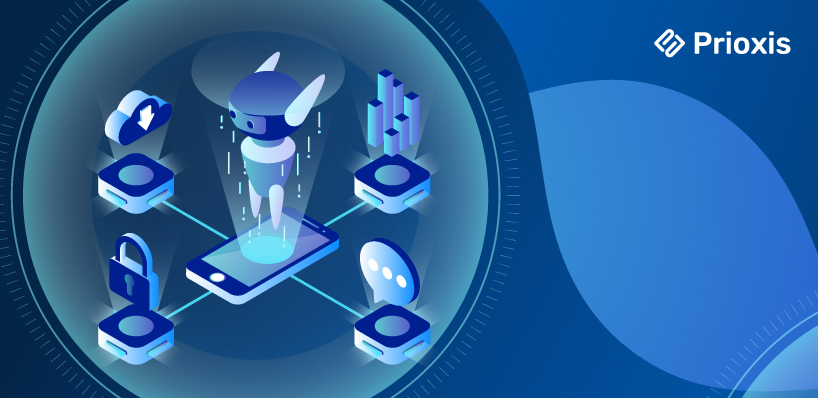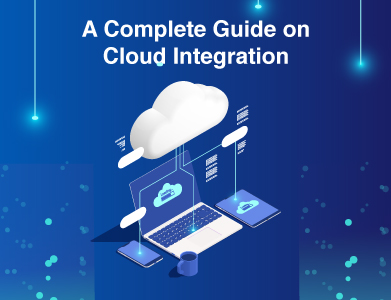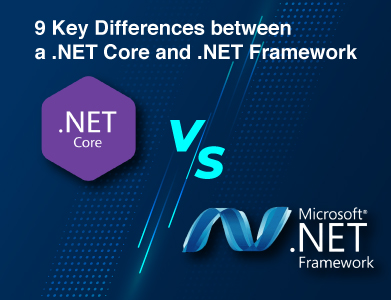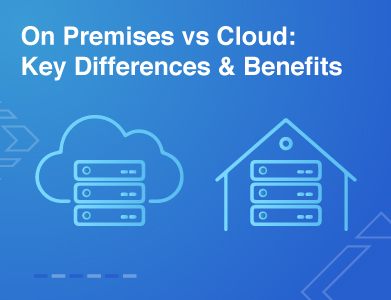Expertise
Is it just another buzzword, or does it hold real potential for your business? How does it relate to Artificial Intelligence? Most importantly, how can it be applied effectively in your organization?
For many businesses, Intelligent Automation (IA) is an intriguing concept that’s often discussed in strategy meetings and innovation workshops. It’s touted as the next evolving step in business transformation.
And they’re not wrong. IA has the power to revolutionize operations across various industries—from finance and insurance to healthcare and logistics. But before diving into implementation, it’s crucial to have a clear understanding of what Intelligent Automation truly is and how it can align with your company’s goals.
The excitement around IA is justified—it’s a tool that can make a significant impact in any business. Let’s start by understanding what Intelligent Automation really means and how it differs from Artificial Intelligence.
Artificial Intelligence vs. Intelligent Automation

Artificial Intelligence (AI) is the foundation of modern intelligent systems. It covers a wide array of capabilities, from processing complex datasets to enabling smart, predictive analytics. AI has moved beyond science fiction and is already being deployed in various sectors—improving everything from medical diagnoses to customer service interactions.
Intelligent Automation? (IA) is a specialized application of AI, a more focused approach combining AI’s learning capabilities with automation. While AI can process and interpret vast amounts of data, IA uses this intelligence to automate specific tasks and workflows, often in real-time, and it learns and improves over time.
What is the Difference Between Artificial Intelligence and Intelligent Automation
- Artificial Intelligence (AI): AI refers to the capability of machines to perform tasks that require human-like intelligence, such as learning, reasoning, and problem-solving.
- Intelligent Automation (IA): IA combines AI with automation to handle tasks that are more complex than simple, rule-based processes. It uses AI to learn and adapt, making automation smarter and more effective.
Top Intelligent Automation Use Cases for Your Business
Whether you're a small business owner or part of a large corporation, understanding how IA can streamline operations and drive growth is essential.
What is IA?
Intelligent Automation is the combination of Artificial Intelligence (AI) and Robotic Process Automation (RPA). It helps businesses to automate complex tasks that require decision-making, learning from data, and adapting to new information. Unlike basic automation, IA can handle unstructured data, make predictions, and optimize processes autonomously.
Understanding the Difference between Artificial Intelligence and Intelligent Automation
While Artificial Intelligence focuses on simulating human intelligence to analyze data and make decisions, Intelligent Automation applies these AI-driven insights to automate processes. IA not only learns from data but also takes action, making it a more holistic solution for business operations.
For Example: AI might predict when a machine in a factory is likely to fail. IA, on the other hand, will use that prediction to automatically schedule maintenance, order parts, and even notify the relevant personnel—all without human intervention.
Intelligent Automation Solutions can be tailored to meet the unique needs of different industries. Below, we explore detailed examples from manufacturing, healthcare, banking, and more, highlighting how IA is transforming these sectors.
What Are the Use Cases for Intelligent Process Automation?
Intelligent Process Automation (IPA) optimizes business processes by combining AI with automation. Here are some practical, detailed use cases:
- Employee Onboarding and Offboarding: Automating onboarding processes ensures that new hires are seamlessly integrated into the company, with all necessary accounts and tools set up automatically. Offboarding can be managed with the same precision, ensuring compliance and data security.
- Customer Onboarding: IA can verify documents, check credit scores, and set up accounts, all within minutes, reducing the onboarding time significantly while ensuring accuracy.
- Compliance Management: IA continuously monitors regulatory changes and automatically updates processes to ensure compliance, reducing the risk of costly fines.
- Customer Relationship Management (CRM): IA can manage customer data, automate follow-ups, and personalize interactions based on previous engagements, enhancing customer satisfaction and loyalty.
- Quote-to-Cash (Q2C): Automating the Q2C process—from generating quotes to processing invoices—reduces the time taken to convert leads into revenue, improving cash flow management.
How Does IA Work?
Intelligent Automation operates by collecting data, processing it through AI algorithms, and then executing actions via RPA. Over time, IA systems learn from their actions, improving their accuracy and efficiency.
For Example: If a telecom company uses IA to process thousands of customer service requests daily. IA systems analyze customer inquiries, categorize them, and either provide automated responses or route them to the appropriate department, significantly reducing response times and improving customer satisfaction.
What Are Examples of Intelligent Automation Benefits?
- Operational Efficiency: Automating routine tasks frees up employees to focus on strategic activities.
- Cost Reduction: IA reduces the need for manual labor, leading to substantial cost savings.
- Improved Accuracy: By eliminating human error, IA ensures more reliable outcomes, especially in data-intensive tasks.
- Scalability: IA systems can easily scale to handle increased workloads, making them ideal for growing businesses.
What Is Common Intelligent Automation Use Cases in Functions and Departments?
IA can be applied across various departments:
- Employee Onboarding and Offboarding
- Customer Onboarding
- Compliance
- Customer Relationship Management (CRM)
- Quote-to-Cash (Q2C)
Each of these functions' benefits from automation, improving efficiency and reducing the burden on human workers.
What Is Industry-Specific Use Cases for Intelligent Automation?
Manufacturing
In manufacturing, Intelligent Automation can transform operations by automating complex workflows and processing large data sets quickly. This includes streamlining ordering, procurement, alerting, and scheduling. IA also enhances predictive maintenance by analyzing equipment data to prevent downtime.
Examples of Automation in Manufacturing
- Production Tracking: Automating the tracking of production processes ensures that every stage is monitored in real-time, improving efficiency and reducing waste.
- Bill of Materials: IA can manage and update the bill of materials (BOM) automatically, ensuring that production runs smoothly with the right components at the right time.
- Auditing: Automated audits reduce the time and errors associated with manual checks, ensuring compliance with industry standards.
- SAP Automation/ERP Operations: IA can integrate with ERP systems like SAP to automate tasks such as inventory management, order processing, and financial reporting.
- Supply Chain Demand Planning: IA helps in forecasting demand, optimizing inventory levels, and ensuring timely delivery of materials, reducing costs and improving customer satisfaction.
Use case
Siemens, a global leader in manufacturing, uses IA to automate production processes and supply chain management. By implementing IA, Siemens reduced operational costs and improved production efficiency, allowing them to respond more quickly to market demands.
Healthcare
In healthcare, Intelligent Automation Solutions improve patient care by automating administrative tasks, managing patient data, and streamlining billing processes. IA can also enhance diagnostics by analyzing patient data to provide personalized treatment recommendations.
Examples of Automation in Healthcare
- Patient Data Management: IA automates the collection and updating of patient records, reducing administrative burdens and improving accuracy.
- Appointment Scheduling: Automated scheduling systems reduce no-shows and optimize the use of healthcare resources.
- Billing and Claims Processing: IA can process insurance claims automatically, reducing errors and speeding up reimbursements.
Use case
Cleveland Clinic has integrated IA to manage patient data and streamline administrative processes. This has resulted in significant cost savings and improved patient outcomes by allowing healthcare providers to focus more on patient care rather than paperwork.
Banking and Financial Services
The banking industry leverages Intelligent Automation to streamline operations, improve customer service, and enhance security. IA is used for tasks ranging from loan processing to fraud detection.
Examples of Automation in Banking
- Loan Processing: IA can automate the loan approval process, reducing the time taken from application to disbursement while ensuring compliance with regulatory requirements.
- Fraud Detection: By analyzing transaction data in real-time, IA can detect and flag potentially fraudulent activities, reducing the risk of financial loss.
- Customer Service: Chatbots powered by IA provide 24/7 customer support, answering queries, and resolving issues without human intervention.
Use case
JPMorgan Chase uses IA to automate the review of legal documents, a process that previously took thousands of hours annually. IA has reduced the time required to review contracts and other documents to just seconds, significantly cutting costs and reducing errors.
Insurance
The insurance industry benefits from IA through automated claims processing, customer service, and compliance management.
Examples of Automation in Insurance
- Claims Processing: IA automates the entire claims process, from initial filing to payout, ensuring accuracy and speed.
- Underwriting: IA can analyze data to assess risk and determine premiums, streamlining the underwriting process.
- Customer Onboarding: Automated onboarding ensures that customers can quickly and easily sign up for new policies, improving the customer experience.
Use case
Allianz, a global insurance provider, uses IA to automate claims processing and customer service. This has resulted in faster claims resolutions and higher customer satisfaction rates with use of insurance software solutions.
Transportation and Logistics
In transportation and logistics, Intelligent Automation optimizes route planning, inventory management, and fleet management, reducing costs and improving efficiency.
Examples of Automation in Transportation and Logistics
- Route Planning: IA analyzes traffic patterns, weather conditions, and delivery schedules to optimize routes, reducing fuel costs and delivery times.
- Inventory Management: Automated AI inventory systems ensure that stock levels are optimized, reducing both overstocking and stockouts.
- Fleet Management: IA can monitor fleet operations in real-time, scheduling maintenance and optimizing vehicle usage to reduce downtime.
Use case
DHL, a global logistics leader, uses IA to optimize its supply chain operations. By automating route planning and inventory management, DHL has reduced operational costs and improved delivery efficiency, ensuring that customers receive their packages on time.
Retail and Commerce
Retail businesses use Intelligent Automation to enhance customer experiences, manage inventory, and optimize pricing strategies.
Examples of Automation in Retail
- Personalized Marketing: IA analyzes customer behavior to deliver personalized marketing messages, increasing engagement and sales.
- Inventory Management: Automated systems monitor stock levels in real-time, ensuring that popular products are always in stock.
- Pricing Optimization: IA adjusts prices based on demand, competition, and other factors, maximizing profits while staying competitive.
Use case
Amazon uses IA to automate various aspects of its operations, from inventory management to personalized product recommendations. This has allowed Amazon to maintain its position as a market leader by providing customers with fast, accurate service and personalized experiences.
Business Benefits of IA
Adopting Intelligent Automation offers numerous benefits that can significantly impact a company’s bottom line and operational efficiency. Here are some key advantages:
- Increased Productivity: By automating repetitive tasks, IA allows employees to focus on more strategic, value-added activities. This shift not only boosts productivity but also improves employee satisfaction, as they can engage in more meaningful work.
- Cost Efficiency: Automation reduces the need for manual labor, leading to significant cost savings. Moreover, IA systems can operate around the clock without interruption, further enhancing cost efficiency.
- Enhanced Accuracy: IA minimizes human error by automating data-intensive tasks, ensuring that processes are carried out with precision and consistency. This is particularly important in industries like healthcare and finance, where errors can be costly and damaging.
- Scalability: IA solutions are highly scalable, allowing businesses to easily adjust to increased demand without the need for additional resources. This is particularly beneficial for companies experiencing rapid growth or seasonal fluctuations in demand.
- Improved Decision-Making: With IA, businesses can leverage real-time data and insights to make informed decisions quickly. This agility is crucial in fast-paced industries where timely decisions can make or break a company’s success.
- Customer Satisfaction: Faster, more accurate responses to customer inquiries and issues lead to improved customer satisfaction and loyalty. IA can help businesses offer a consistent, high-quality customer experience, which is vital for retaining customers in competitive markets.
Challenges
While Intelligent Automation offers substantial benefits, it also presents challenges that businesses need to address:
- Integration with Existing Systems: Implementing IA requires careful integration with existing IT infrastructure. This can be complex and time-consuming, particularly for legacy systems that may not be designed for automation.
- Change Management: Transitioning to IA involves a cultural shift within the organization. Employees may need to be retrained, and there may be resistance to adopting new technologies.
- Data Quality: The effectiveness of IA depends on the quality of the data it processes. Poor data quality can lead to inaccurate outcomes, undermining the benefits of automation.
- Initial Investment: Implementing IA requires upfront investment in technology, training, and process redesign. While the long-term benefits often outweigh the costs, the initial financial outlay can be a barrier for some businesses.
IA is Ideal for
Intelligent Automation is particularly well-suited for businesses that:
- Operate in High-Volume, Repetitive Workflows: Industries such as finance, manufacturing, and customer service, where repetitive tasks are common, can see immediate benefits from IA.
- Need to Enhance Compliance: Businesses in heavily regulated industries like healthcare, finance, and insurance can leverage IA to stay compliant while reducing the burden on human workers.
- Aim to Improve Customer Experience: Companies that prioritize customer satisfaction can use IA to automate and personalize customer interactions, leading to higher loyalty and retention rates.
Automate your way to success
The potential of Intelligent Automation to transform businesses is immense but realizing that potential requires a strategic approach. Whether aiming to improve operational efficiency, reduce costs, or enhance customer satisfaction, IA offers a tailored solution that meets specific needs.
Prioxis is a leading IA company with deep expertise in intelligent automation, robotic process automation that helps businesses like yours to scale fast and automate operations even faster!










